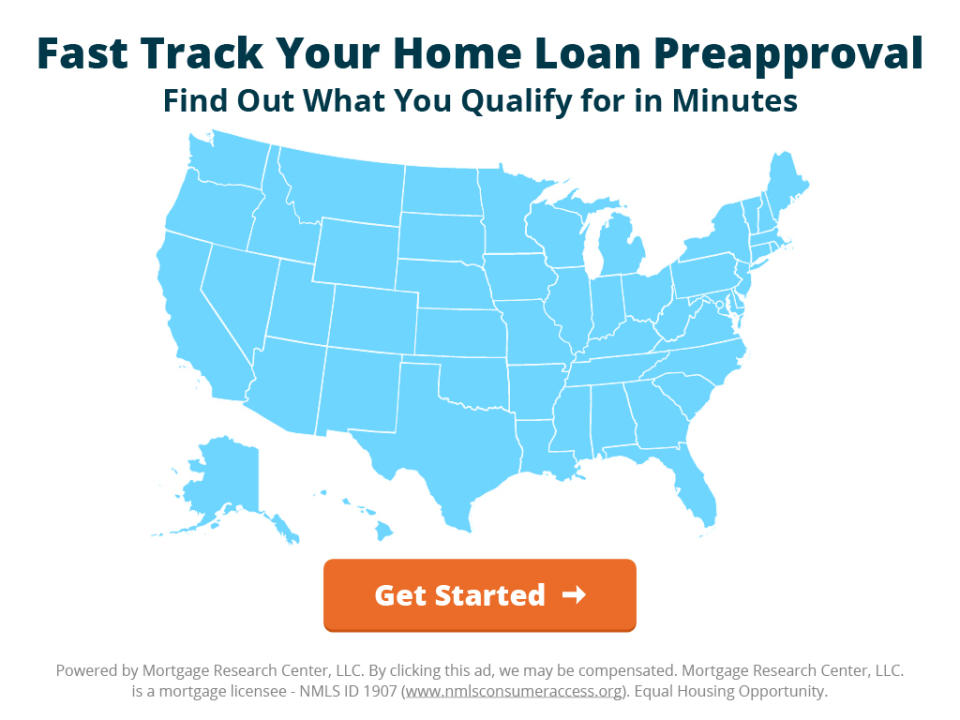What's the Difference Between a Mortgage Pre-Approval and a Pre-Qualification?

A mortgage pre-approval and pre-qualification might sound similar, but there’s a big difference: One will help you buy a home, and the other will get you laughed out of an open house.
A pre-approval means something: Your lender has reviewed your income, assets, and pulled credit to verify what you can afford.
A pre-qualification is based on what you verbally told your lender. No hard evidence of your financial standing was supplied.
Here’s why you need a pre-approval, not a pre-qualification.


You Need a Pre-Approval to Buy a Home
In today’s market, sellers are picky. Even as competition has cooled in late 2022, there are still only 1.28 million homes on the market in the U.S., compared to more than 2.2 million prior to 2016, according to the National Association of Realtors.
Many sellers hope for a cash buyer. If they don’t get one, they look for a well-qualified mortgage buyer. And they only know if you’re qualified if you supply a pre-approval – a full mortgage approval in which the lender has reviewed everything except the property.
In other words, the lender has calculated income, totaled your assets, and performed a hard credit pull. It has examined your debt-to-income ratio and determined a maximum home price.
This takes time and commitment. Not just anyone can receive a pre-approval. This is another reason sellers and their agents require one: It shows you’re serious.
But even a pre-approval is just a piece of virtual paper that can be faked.
Phil Ganz, a loan officer with Movement Mortgage and creator of MakeFloridaYourHome.com, reports what’s happening in the fiercest markets.
“In certain states like Florida,” said Ganz, “all the real estate agents ask for DU or LP,” which refer to Desktop Underwriter and Loan Prospector, Fannie Mae and Freddie Mac’s respective computerized underwriting results.
Ganz said that Fannie Mae and Freddie Mac prohibit supplying the DU and LP result, but “the agents don’t care. You’re not going to get your deal accepted if you don’t provide it.”
In other words, agents are verifying that the loan officer isn’t just typing up a letter on company letterhead and emailing it over.
Don’t have a rock-solid, fully-documented pre-approval? Some sellers won’t even dignify your offer with a response.
» Expert Tip:Looking to buy soon? Set yourself up for having your offer accepted on a home by getting preapproved for a mortgage prior to your home search.
Why a Pre-Qualification Is Essentially Worthless
Pre-qualifications were popular before the housing meltdown of the late 2000s.
In the days of no-income, no-asset, no-nothing loans, why would a loan officer process a stack of paperwork?
These days, lending is much more strict. A small detail could derail the entire approval. You would be hard-pressed to find a lender to issue you a pre-qualification at all.
For instance, say you’re self-employed. You think you make $100,000 per year, but your write-offs mean the lender can only use $50,000 to qualify.
Or, you forget to tell your lender a “minor” detail: A bankruptcy five years ago. With no credit report, they would never know.
It would be only after you’ve received an accepted offer from the seller that you find out your “approval” is worthless.
Expecting a first-time homebuyer to report every potential lending issue in their life is akin to your local lawnmower repairman telling Elon Musk how to build a Tesla.
Even if a lender would agree to issue an approval without verifying your situation, that piece of paper would only be fit for the recycle bin.
Even a Pre-Approval Sometimes Isn’t Enough
Pre-qualifications are already a relic, and pre-approvals may not be very far behind.
“Everyone now is collecting full documentation at a minimum,” said Ganz. “But if you look at the trend, everything is going toward cash guarantees.”
Ganz is referring to programs in which an entity will purchase the home in cash on the buyer’s behalf and complete the mortgage after closing. These services give the seller confidence that the sale will go through quickly, even if there’s an issue with the mortgage.
Real estate startups like HomeLight and Orchard are emerging to turn first-time buyers into cash buyers, and lenders are getting into the game as well. It seems like every few months, new cash-offer companies with strange names like Zigzy and Knock are entering the market, capitalizing on home sellers’ high expectations.
These companies take the pre-approval idea to the next level: They back their approval with cash to give their buyer the highest chance of an accepted offer.
Time To Get Serious About Homebuying
Get serious about your homebuying goals, and prepare to submit your complete financial picture to the lender.
A smart buyer will do this long before they want to buy a home. A pre-approval is the only way to truly know what price range you can qualify for.
There’s no use getting your heart set on a certain size, style, or location of a house based on a guess. Know what you can afford, then start looking.
»Expert Tip: Thinking about buying a home but want to secure a good rate? Find a lender that gives you the power to lock an interest rate for an extended period so you can shop around for a home comfortably knowing that your rate is secure and won't go up. Get started here!
More from Mortgage Research News:
4 Things Would-Be Homebuyers Should Never Say To Lenders
Zero-Down USDA Mortgages Aren't Just for Farmers
Housing Inventory Rose 27% in September from a Year Ago, Realtor.com Says

